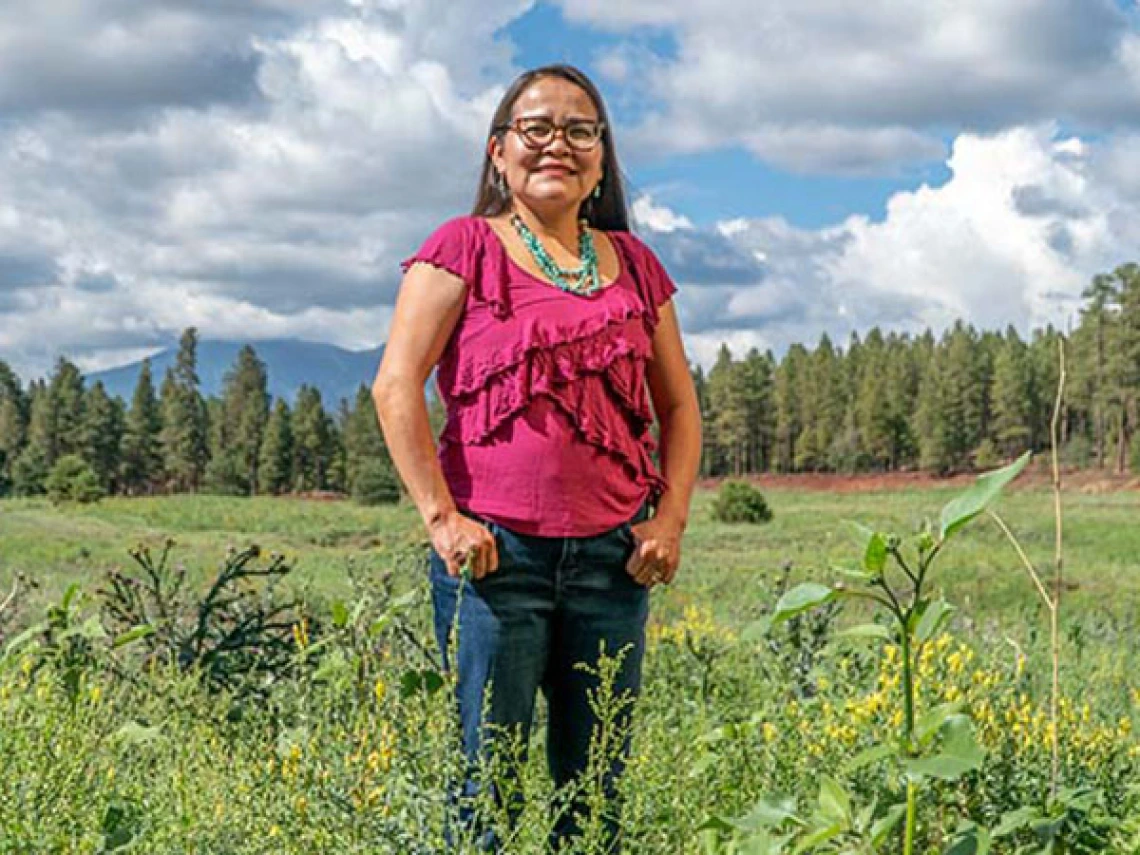UArizona-Diné College Partnership Studying Arsenic-Diabetes Connection

Dr. Karletta Chief, University of Arizona Superfund Research Center (UA SRC) Community Engagement Core Lead, was interviewed by the Native Science Report, an online journal focusing on STEM education within tribal and Native-serving colleges and universities, for “Diabetes on Tap,” a recently published article.
The article explores the partnership between the University of Arizona and Diné College and their project to study the connection between arsenic-contaminated drinking water and diabetes and to improve access to contaminant-free water.
Arsenic’s dangers are well known—it is toxic and a carcinogen—but there is growing evidence that it also contributes to diabetes.
“Our new focus is on the linkages of diabetes and arsenic in mine-laden waters because there’s been research indicating that arsenic in water is actually contributing to diabetes,” said Chief. “One in three Native Americans have diabetes and at the same time tribes are disproportionately impacted by mining,” she added.
Dr. Chief works alongside Dr. Donna D. Zhang, associate director the UA SRC. Dr. Zhang found that high levels of arsenic can affect insulin production, lipid profiles and blood sugar levels in ways that can contribute to the onset of Type 2 diabetes, the “adult onset” diabetes that afflicts 90 percent or more of the 34 million Americans with diabetes.
“The key is we’re leveraging a lot of our existing partnerships to do this project,” Chief explained, referring to the partnership with Diné College.
Along with Superfund support, Chief and others have received millions in funding from the USDA National Institute of Food and Agriculture, the National Institute of Environmental Health Sciences, the UA Arizona Institutes for Resilient Environments and Societies, the Agnese Nelms Haury Program in Environmental and Social Justice, and others.
Another key funding source is a National Science Foundation program known as Indege-FEWSS, for Indigenous Food, Energy, and Water Security and Sovereignty, which supports the work of 39 graduate students, many of them Indigenous.
Read the article: https://nativesciencereport.org/2022/03/diabetes-on-tap/#more-6599

